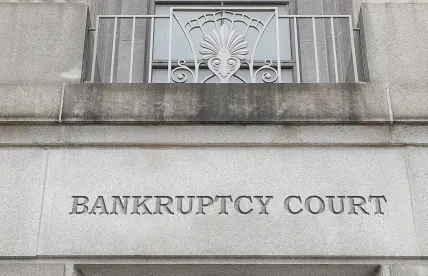Addressing an issue of first impression, the Second Circuit held recently that bankruptcy courts have inherent authority to impose non-nominal civil contempt sanctions, including per diem sanctions and attorneys’ fees, arising out of an attorney’s failure to comply with the bankruptcy court’s discovery orders.
The case arose from the insolvency of Vneshprombank, one of Russia’s largest banks. Under Russian bankruptcy law, the bank’s creditors were permitted to commence bankruptcy proceedings against Larisa Ivanovna Markus, the bank’s founder and president, who was later convicted for embezzling approximately $2 billion from Vneshprombank. As a tributary of those insolvency proceedings in Russia, Markus’s foreign representative—appointed under Russian law to preside over the liquidation of Markus’s assets—initiated Chapter 15 proceedings in the Southern District of New York to seek discovery concerning Markus’s assets located in the United States.
Through her New York attorney, Markus challenged the Chapter 15 proceeding by moving to dismiss it, and then insisted that her motion should stay the foreign representative’s discovery requests. Accordingly, as the bankruptcy court found, Markus’s attorney “made no effort to obtain responsive documents” and failed repeatedly to meet and confer with the foreign representative regarding discovery. The court, however, repeatedly cautioned that the pending motion did not excuse Markus’s discovery obligations and imposed a deadline by which Markus’s attorney had to produce all documents responsive to the pending subpoenas. Markus’s attorney did not meet this deadline, however.
At the bankruptcy court’s urging, the foreign representative moved for sanctions. Finding that the attorney “demonstrated . . . willful disregard” of the court’s orders, the court ordered him to pay $1,000 per day for his noncompliance and attorneys’ fees as sanctions to enforce compliance with its orders.
The attorney appealed—twice to the district court and then to the Second Circuit—arguing that the bankruptcy court lacked inherent authority to impose non-nominal compensatory and coercive contempt sanctions. The Second Circuit rejected that argument, thus resolving an issue of first impression. The court first noted that it is well-established that Article III courts are vested with inherent authority “to manage their own affairs so as to achieve the orderly and expeditious disposition of cases,” and this authority includes the “power to punish for contempts.” It then reasoned that “inherent sanctioning powers are not contingent on Article III, but rather are, as their name suggests, inherent in the nature of federal courts as institutions charged with judicial functions.” This authority cannot be limited to nominal or non-contempt civil sanctions, as the attorney contended on appeal. Rather, “[j]ust like an Article III court, a bankruptcy court must have the authority, inherently, to address contemptuous conduct that occurs before it.”
That authority is not unlimited, however, as the Second Circuit noted. First, bankruptcy courts must exercise that authority only as a last resort “for when an express authority is not up to the task,” and “may not contravene valid statutory directives and prohibitions.” Second, the exercise of that inherent authority may be upheld only if the bankruptcy court specifically invokes it as the basis for the sanctions. Third, as is equally true of Article III courts, bankruptcy courts’ invocation of that authority must “comply with the mandates of due process.” Fourth, while the imposition of sanctions under a bankruptcy court’s inherent powers requires a specific finding that an attorney acted in bad faith when that attorney’s misconduct falls within his role as an advocate, no such finding is required when the misconduct falls within the attorney’s role as an officer of the court and is not undertaken for the client’s benefit.
Applying these principles, the Second Circuit found no abuse of discretion in the bankruptcy court’s resort to its inherent authority to impose sanctions on Markus’s attorney. The Second Circuit further rejected the attorney’s argument that the bankruptcy court violated his due process rights because it failed to provide sufficient notice as to the authority under which sanctions were imposed. As the appellate court noted, the attorney had ample notice of the basis and reasons for the imposition of sanctions.



 />i
/>i

